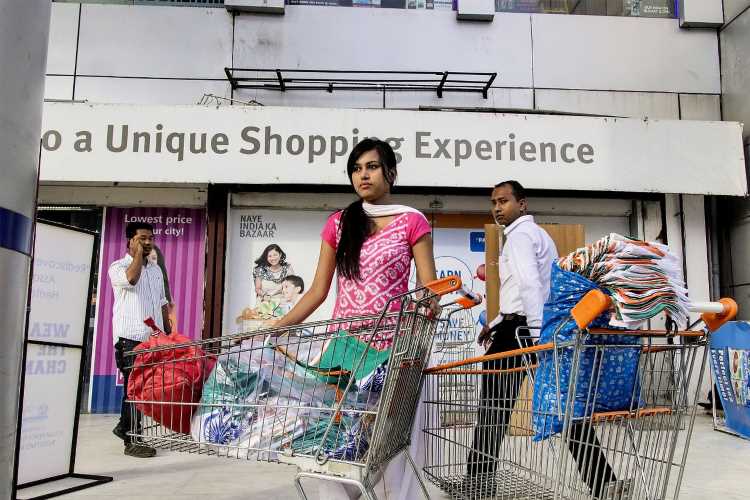
By John Samuel
The Covid-19 pandemic will have a huge impact on the economy, society and politics of most countries in the world. The impending financial crisis will also mark the saturation of the kind of globalization that was unleashed in the early 1990s after the fall of Soviet Union. What is increasingly clear is that the adverse economic impact of the pandemic will persist for the next three years. As per the estimates of IMF, global economy is likely to contract 3% in 2020. In fact, the damage could be worse. IMF projects a loss of $9 trillion to the global economy. The World Trade Organization projects trade volumes to decline by a third. At this point, these are all guesses and projections, not based on data analysis.
The economic crisis has affected all sections of the economy and society. The lockdown has resulted in loss of employment in an unprecedented way. It has pushed a significant section of the poor into abject poverty and hunger. While many counties like India made provisions for basic necessities, they haven’t addressed the issue of the loss of livelihood of millions. Migrant workers got stuck without adequate means of livelihood.
READ: Government must enlist experts, NGOs in fight against recession
While the impact of the pandemic on the poorest of poor is getting amply highlighted, adequate attention has not been given to the plight of the vulnerable middle class. These are people who survived poverty and acquired skills to get employment to live a decent life. Many of them have a house, household facilities, and even one or two vehicles. But many of them survive on a regular salary, a significant part of which goes into repayment of housing and vehicle loans.
Take the instance of Kerala. The apparent prosperity and wellbeing hide the economic situation of a large number of Malayalees. Most people have a house with all household amenities. However, a large number of people are dependent on remittances, especially from the Gulf countries. Most of these households have large home loans. Without a regular monthly income, many of them may be exposed to poverty, but will be reluctant to seek help. Since last month, many of them are at the mercy of government rations. The issue of the vulnerable middle class is more serious than it appears. This is true even in the other emerging economies in Asia and other parts of the world.
READ: India’s Faustian bargain: Alcohol revenues trump health, science, welfare
There are 6.3 million micro, small and medium business enterprises (MSMEs) in India. These provide self-employment as well as wage employment for people in single digits to a few hundreds. This sector employs most of the vulnerable middle-class people who earn between Rs 12,000 and Rs 50,000 a month. It is estimated that around 12 crore people are employed in MSMEs. If we calculate an average of 4.5 people per household, the livelihood of around 54 crore people depend on MSMEs. The pandemic and the lockdown together have dealt a blow to these people, with huge repercussions for the economy.
Only those employed by government and professionals in corporates with good salary and savings may be able to survive this economic crisis. However, even here the situation is not as rosy as it appears. If the lockdown persists for another month, many corporates will be forced to reconfigure their business models, resulting in people losing jobs.
READ: An imperfect future: Imagining the post-Covid world order
India was witnessing a middle-class distress when the coronavirus pandemic broke out. There was a demand slump across categories such as automobiles, white goods, fast-moving consumer goods and jewellery. It was clear that India’s middle class was spending less. Consumption was shrinking in both urban and rural areas, pointing to a stagnation in upward mobility in the economy.
The shrinking of the middle class will have disastrous consequences for the Indian economy. It was the sizeable middle class that helped the economy break away from the ‘Hindu rate of growth’. The high single digit growth rate enjoyed by the economy in the last two decades could be a thing of the past if the government fails to address the middle-class distress.
(John Samuel is a policy and governance expert, social entrepreneur and development economist.)
